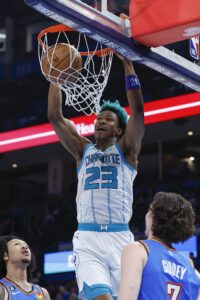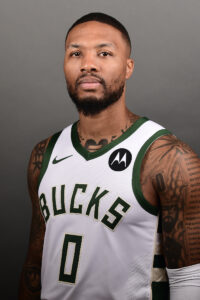NBA executive vice president of basketball operations Joe Dumars says the league’s data no longer shows the benefits of load management, according to Joe Vardon and Sam Amick of The Athletic. As Vardon and Amick write, the term “load management” has become ubiquitous in recent years, but it generally refers to the practice of resting players — particularly stars — to theoretically reduce the risk of injury.
“Before, it was a given conclusion that the data showed that you had to rest players a certain amount, and that justified them sitting out,” said Dumars. “We’ve gotten more data, and it just doesn’t show that resting, sitting guys out correlates with lack of injuries, or fatigue, or anything like that. What it does show is maybe guys aren’t as efficient on the second night of a back-to-back.”
Dumars added players should be striving to play all 82 games on the regular season schedule.
“Obviously everybody’s not going to play 82 games, but everyone should want to play 82 games. And that’s the culture that we are trying to reestablish right now,” he said.
In September, the league instituted its new player participation policy, which will impact 49 players who have made All-Star or All-NBA teams over the past three seasons. Stars sitting out games when they were healthy, plus the extremely lackluster All-Star game in February, evidently reached a tipping point for the league.
“You get here by not addressing it,” Dumars said. “You get here by slippage, by just slowly – year after year after year…just slowly over time – you see all this slippage in missing of games during the regular season, the All-Star Game devolving into what it did this past year. And none of that happened just like after one year. And so at some point, you have to stop the slide. You have to address it.”
The NBA is also in the process of negotiating a new media rights deal — the current contract expires after 2024/25. Obviously marquee players missing nationally televised games has been an issue in negotiations, as was the poorly-rated All-Star game, which turned off fans and broadcast partners. Dumars admitted all of those things played a factor in the participation policy, which he said the NBPA agreed to.
“Yeah, yes … I can’t [lie],” Dumars said with a laugh, per Vincent Goodwill of Yahoo Sports. “That’s a part of it. To pretend it isn’t would just be dishonest.”
Evan Wasch, the NBA’s executive vice president of basketball strategy and analytics, was also on the call and offered his opinion on the matter.
“I also think we don’t need our TV partners to tell us that when teams sit players and players don’t try in an All-Star Game,” Wasch said, according to Tim Bontemps of ESPN. “That makes for worse competition. Right? It’s incredibly obvious to us, and ultimately, we’re trying to serve fans. Yes, it’s the case that because we’re negotiating TV deals in the next year or two here, it takes on an even greater importance because we’re in the middle of those conversations; but we can self-identify that these were issues that need addressing independent of any outside.”
Dumars and Wasch said they’ve been meeting with teams ahead of the 2023/24 season to stress the importance of playing as many games as possible, creating a more competitive All-Star game, and promoting buy-in for the new in-season tournament.
 6:40pm: An arrest warrant and criminal summons have been issued for Hornets forward
6:40pm: An arrest warrant and criminal summons have been issued for Hornets forward  Jones had been
Jones had been  The biggest
The biggest